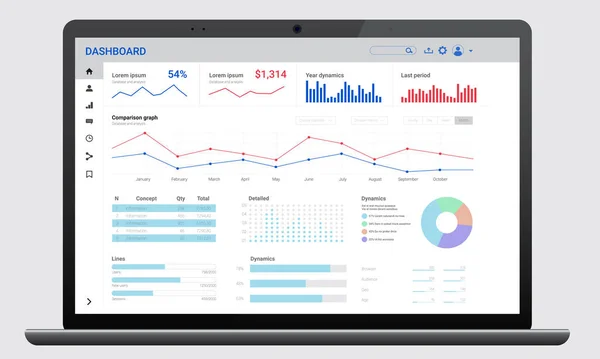Are you feeling overwhelmed by the complexities of Kenya’s tax system?
You’re not alone. For investors, small business owners, and individuals alike, navigating the Kenya taxation system is challenging. With laws and regulations changing annually, it’s no wonder many find themselves in need of expert guidance. In this comprehensive guide, we’ll delve into t
he world of tax consulting in Kenya, covering everything you need to know to navigate the ever-evolving landscape of taxation.
- Tax Laws, requirements and regulations in Kenya
- Why You need to Hire a Tax Consultant?
- The Benefits of Hiring a Tax Consultant
- Top Services Offered by Tax Consultants
- How to choose a good Tax Consultant
- The best Tax Consulting Strategies for Businesses in Kenya
- Top Tax Consulting Strategies for Individuals in Kenya
Tax Laws, requirements and regulations in Kenya
The Kenya’s tax system comprises of both direct and indirect taxes. The Direct taxes include income tax, corporate tax, capital gains tax, and withholding tax, while indirect taxes encompass value-added tax (VAT), excise duty, and customs duties.
Read Next: The best 10 tax planning tips for All taxpayers in Kenya
The Kenya Revenue Authority (KRA) is the primary tax administration agency. It is responsible for overseeing compliance with tax laws, conducting audits, and administering tax registration, filing, and payment processes.
On the other hand a taxpayer in Kenya, who includes individuals earning taxable income, businesses operating in Kenya, and other entities liable to pay taxes, your responsibilities include:
- Registration: Register with the Kenya Revenue Authority (KRA) if you meet the criteria for tax registration.
- Filing Tax Returns: Submit accurate and timely tax returns to the KRA, declaring income, deductions, exemptions, and other relevant information for the applicable tax period. Tax returns must be filed annually, monthly or as per specified tax calendar.
- Payment of Taxes: Pay taxes owed to the KRA within stipulated deadlines.
However, you should note that Tax policy and regimes in Kenya are dynamic. The recent tax reforms have introduced changes to tax rates, incentives, and compliance requirements, highlighting the importance of staying updated with evolving tax regulations.
Why You need to Hire a Tax Consultant?
Ever wondered what would happen if you did not file your taxes on time? If you’re unable to file taxes on time, or comply with the tax filing requirements it can lead to penalties, interests and possible litigations. This can result from any of types of tax compliance failure below.
Types of Tax failures
Your failure to comply with your area’s tax obligations is a punishable offence. The common failures include;
- Failure to file your tax returns on time
- Failure to pay taxes by the set deadline
- Failing to make deposits on certain taxes
- Intentional or unintentional failure to declare all taxable income, leading to underpayment of taxes and potential tax evasion charges.
What are the consequences of not filling my taxes ?
Failing to file taxes can have serious financial, legal, and reputational consequences. The list below summarises the key results of you will face for not filing your returns on time.
- Penalties and Interest: The tax authorities may impose penalties and interest charges for late filing. The longer you delay filing, the more substantial the penalties and interest charges can become.
- Loss of Tax Refunds: Failing to file taxes means you could miss out on any potential tax refunds owed to you.
- Legal Action: Persistent failure to file taxes may result in legal action by the tax authorities. This could include the issuance of tax liens on your property, wage garnishment, or even civil or criminal charges in severe cases of non-compliance.
- Inability to Obtain Loans or Credit: Lenders and creditors may hesitate to extend loans or credit to individuals or businesses with a history of tax non-compliance, as it indicates a higher risk of default.
- Disrupted Business Operations: For businesses, failure to file taxes can disrupt operations and harm business relationships.
- Audits and Investigations: Non-filing of taxes may trigger audits or investigations by tax authorities. Audits can be time-consuming, costly, and intrusive, requiring you to provide extensive documentation and explanations for your financial affairs. Moreover, audits may uncover additional tax liabilities, leading to further penalties and interest charges.
To improve compliance with tax laws and avoid potential risks as outlined above, it is good to seek the services of a qualified tax professional. Alternatively you can contact the tax authorities to explore options for filing extensions or resolving any outstanding issues.
The Benefits of Hiring a Tax Consultant

- Expertise and Knowledge:
- Tax consultants stay abreast of legislative changes, updates, and precedents on Kenyan tax laws, regulations, and compliance requirements. This will give you accurate and up-to-date advice.
- Tax Planning
- Tax consultants identify opportunities for deductions, credits, incentives, and exemptions. This helps you to reduce your overall tax burden.
- Compliance and Risk Mitigation:
- Tax consultants ensure that taxpayers adhere to tax filing deadlines, reporting requirements, and pay obligations. accurately and punctually.
- Guidance on navigating complex tax audits, investigations, and disputes, for fair and equitable resolutions with tax authorities.
- Strategic Decision-Making:
- Whether expanding operations, restructuring business entities, or planning for retirement, tax consulting empowers taxpayers to make proactive and strategic choices that maximize tax benefits and minimize risks.
Top Services Offered by Tax Consultants
Tax consultants provide a comprehensive suite of services designed to meet the diverse needs of businesses and individuals in Kenya. As a taxpayer, you can access their tax planning and complice, advisory and representation services, these services encompass a wide range other related matters.
- Tax planning involves developing customized tax strategies to optimize tax outcomes based on clients’ specific circumstances and objectives.
- Tax compliance management ensures timely and accurate adherence to tax laws and regulations, minimizing the risk of penalties and fines.
- Tax advisory services offer expert guidance on complex issues.
- Tax representation provides advocacy and support in audits, investigations, and disputes.
- Specialized services, such as international tax planning and capital allowances optimization, address unique challenges and requirements faced by clients in various industries and sectors.
How to choose a good Tax Consultant
Selecting the right tax consultant is critical fr you. The Several key considerations that you should keep in mind when evaluating them include;
| Critetia | Considerations |
| Qualifications | Look for a certified public accountant (CPA), tax attorneys, or chartered tax advisors. |
| Reputation and Credibility | Get Professionals with good recommendations from trusted sources, such as colleagues, business partners, or professional associations. Hire consultant’s registered with with professional organizations or regulatory bodies such as ICPAK or LSK. |
| Experience and Specialization | A good consultant has rich experience and track record in providing tax consulting services in your industry or sector. Gauge areas of experience such as as international taxation, WHT, or VAT, depending on your specific needs. |
| customer care | Evaluate the consultant’s communication style, responsiveness, and accessibility Discuss frequency of updates, reporting mechanisms, and availability for consultations |
| Cost | Ensure the consultant’s fee structure, including hourly rates, retainer fees, or project-based pricing, aligns with your budget and expectations. Consider the value proposition including potential for tax savings, risk mitigation, the overall ROI |
By conducting a thorough due diligence, select a consultant that aligns with your needs and objectives.
The best Tax Consulting Strategies for Businesses in Kenya
Businesses operating in Kenya can benefit from tailored tax consulting strategies designed to optimize tax efficiency and compliance.
Tax planning for business operations involves developing tax strategies for tax deductions, credits, and incentives while ensuring compliance with laws. Compliance management ensures timely adherence to filing and reporting obligations, to reduce the risks of penalties and fines. International tax planning deal with cross-border taxes for multinational businesses. Capital allowances optimization and investment incentives help you to make savings via eligible capital expenditures and investments.
Related: How to reduce your business taxes in Kenya-5 Best tips
Top Tax Consulting Strategies for Individuals in Kenya
Individual taxpayers in Kenya can leverage personalized tax consulting strategies to optimize tax efficiency and compliance with laws. Personal income tax planning involves developing tailored strategies to minimize liabilities based on individual circumstances, such as employment income, rental income, and investment income.
Capital gains tax planning focuses on reducing your liabilities during asset disposals and capital transactions. Estate and inheritance tax planning addresses potential tax charges for beneficiaries during wealth transfer options. Retirement planning strategies ensure financial security in retirement while decreasing tax liabilities on retirement income sources.
Read Next: How to reduce your tax burden in Kenya-8 best tips for individual Taxpayers
Conclusion
In conclusion, tax consulting plays a crucial role in helping businesses and individuals navigate the complexities of the Kenyan tax system, enhance tax efficiency, and achieve long-term financial success. They can help you to implementing tailored tax strategies that reduce your tax liabilities, ensure compliance with tax laws, and increase tax savings. With proactive tax planning, accurate compliance management, and effective representation in tax matters, as a businesses or an individuals can navigate the challenges of the tax system with confidence and achieve their financial goals.



